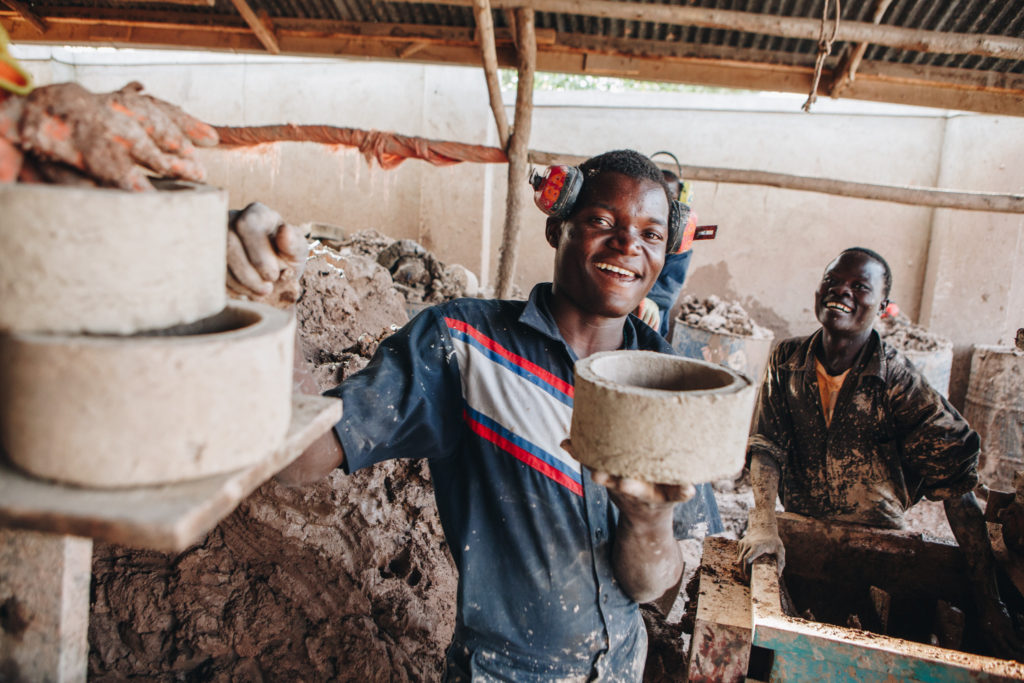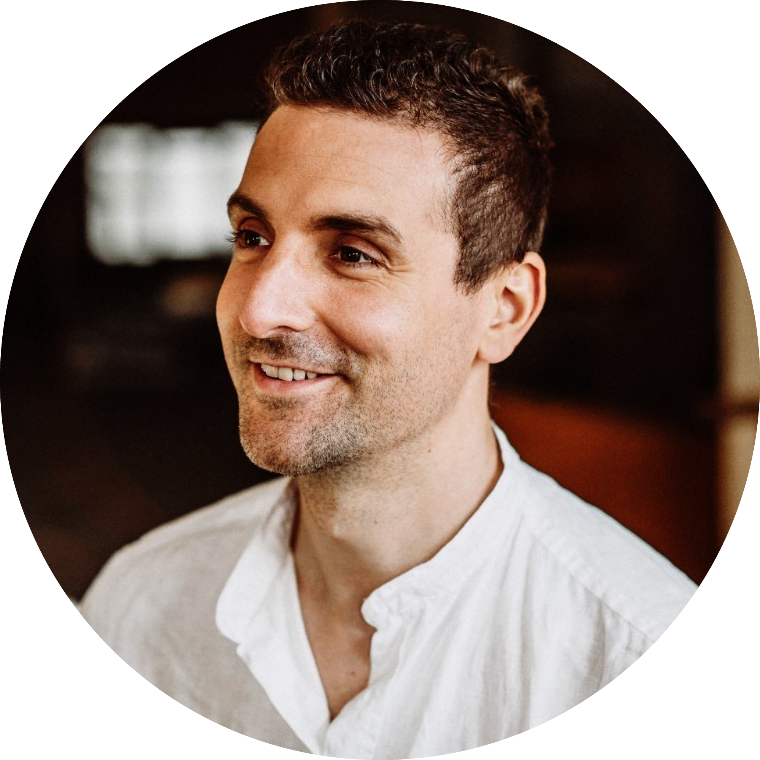
Building on a strong expertise of social business and innovation, Yunus Social Business harnesses the power of business to fight against poverty and the climate crisis. Convinced that tackling global issues should be addressed from two angles, the social and the business one, David Berners, Director Product Strategy and Investor Relations, tells us about how the spirit of Prof. Yunus shaped the organisation to grow and support social businesses to solve global pressing problems.

What is the approach of Yunus Social Business to fostering social businesses?
At Yunus Social Business, we have two different approaches :
From the bottom up: Yunus Funds grows social businesses that provide employment, education, healthcare and clean environment to millions of people in East Africa, Latin America & India. We turn donations into investments in social businesses, which we reinvest over and over again, multiplying the impact each time. Our long-term, patient loans and hands-on growth support are delivered by our teams of local professionals, partnering with social businesses to help them flourish.
…and from the top down: Yunus Corporate guides multinationals (such as Reckitt, Danone, Veolia, McCain and MAN) to help them transform their purpose. Harnessing our years of experience with social businesses and corporations, we connect the two. With our method, corporations can apply their core competencies to some of the greatest human challenges through working with Social Businesses.
How do you bring the spirit and philosophy of Professor Yunus to life on a daily basis? How would you describe the values he stands for?
In 1983, Prof. Muhammad Yunus created the Grameen Bank, beginning a microfinance revolution which in 2006 earned him one of humanity’s most prestigious awards, the Nobel Peace Prize. Grameen grew from a microcredit bank into a group of enterprises created with the specific intention of solving human problems. These embodied the first cases of a new, emerging model: Social business. Yunus Social Business was founded in Germany in 2011 by Prof. Muhammad Yunus with his two co-founders to expand on the success of social business from Bangladesh and ignite it around the world. Around the same time, corporations began to come to us, excited by the value of social business. We began working with corporations that were inspired to integrate social businesses into their business model – creating the first corporate social businesses.
Professor Yunus has been focusing on building A World of 3 Zeros for decades: 0 Poverty, 0 Unemployment, 0 Net Carbon Emissions. It is these same goals that guide our decisions daily. We are an Impact First organisation, focused on using the power of social businesses to create change. We do this by supporting social businesses that contribute to this vision on their path to financial, operational and impact sustainability
Do you have a mantra of Professor Yunus that guides your actions?
“In order to go in a different direction, we need to build new roads.”
What is your vision of “Social business”? Is it a common understanding?
A social business is a company that is 100% dedicated to solving a social and/or an environmental issue. Financial benefits are reinvested towards the cause and decisions are always taken to maximise impact, rather than financial profitability.
In the strictest sense, social businesses are created with the sole purpose to generate social and environmental impact, using business as a means to this end. In a larger sense, a social enterprise is a company primarily focused on addressing a social and/or environmental issue, without necessarily directing all its profits to this cause.
Hence, It is all about the intentionality of the (social) business and the use of proceeds.
What criteria do you use to select the projects or social enterprises you support?
We invest in social businesses that seek to meet the unmet needs of low- and middle-income communities across Latin America, East Africa and India. Our social businesses work with these communities in multiple capacities – as providers of affordable products and services, providing market access, sustainable income opportunities and / or work with them as suppliers. We are an impact-first investor with a focus on social and environmental impact. We integrate both impacts into our investment as we see how economically vulnerable communities are also often the most impacted by harmful environmental practices and climate change effects. Economically vulnerable communities face health hazards (e.g., air and water pollution, toxic waste) as well as risks to their livelihoods (e.g. effect of droughts to food security). We focus on sustainable solutions to both social and environmental challenges working with social businesses to build meaningful models in local economic ecosystems.
We strive to support social businesses that contribute to the following three areas:
- Affordable quality products and essential services become available to low-income individuals and households
- Low-income individuals and households have increased access to employment and/or income generating opportunities
- Protection of the environment through sustainable management and efficient use of natural resources
Our investment strategy targets social businesses in emerging markets across Latin America, East Africa and India. As a debt investor, we prioritize businesses with 3-6 years of operation and being EBITDA positive (or with a credible perspective to be so within the 2 years) to allow for sufficient liquidity and mitigate default risk. Our average ticket size ranges from USD 200,000 to USD 500,000 and we lend in local currency.
You operate in many countries and continents. How do you adapt your action to meet the specific needs of each territory?
Yunus Social Business is a Global South-led organisation with offices and local teams in 3 regions: Latin America (Sao Paulo), India (Bangalore) and East Africa (Nairobi). Central support activities are located in Berlin.
Our model is one with boots on the ground in these markets.
It is the responsibility of each of the regions to define their investment strategy based on the local needs and Yunus Social Business’ added value. A such, we focus on sectors that are most impactful in each of the countries we work in, with social businesses in healthcare, education, agriculture, dignified jobs, waste management, WASH, and others. Regional differences naturally occur as our teams with boots on the ground have a unique insight into the markets. For example, Green Jobs is one of our main sectors in Brazil, while Waste & WASH is prevalent in East Africa and India.
What advice would you give to the new generation of entrepreneurs and activists who want to make a change in the world?
Dare to be different and walk the unbeaten path of proving that business and capitalism can serve social and environmental sustainability.
To say it in Mark Twain´s words: “They didn´t know it was not possible, so they just did it!”
Want to know more about Yunus Social Business? Click here.


